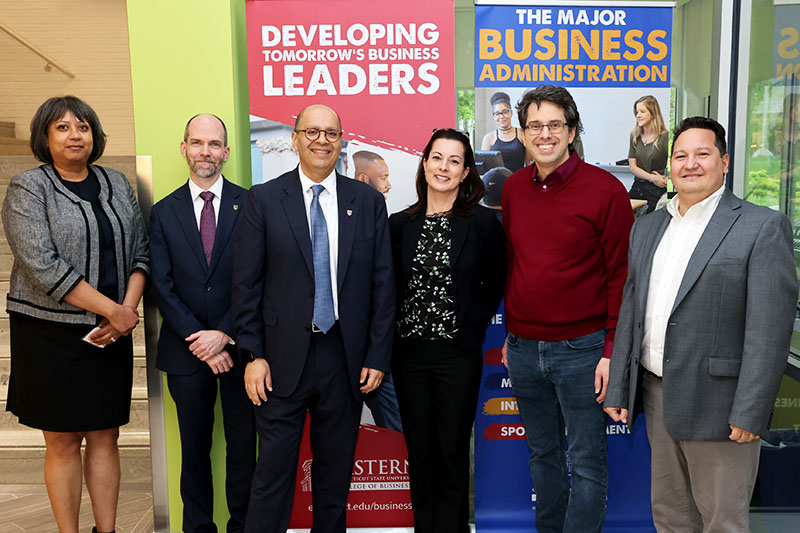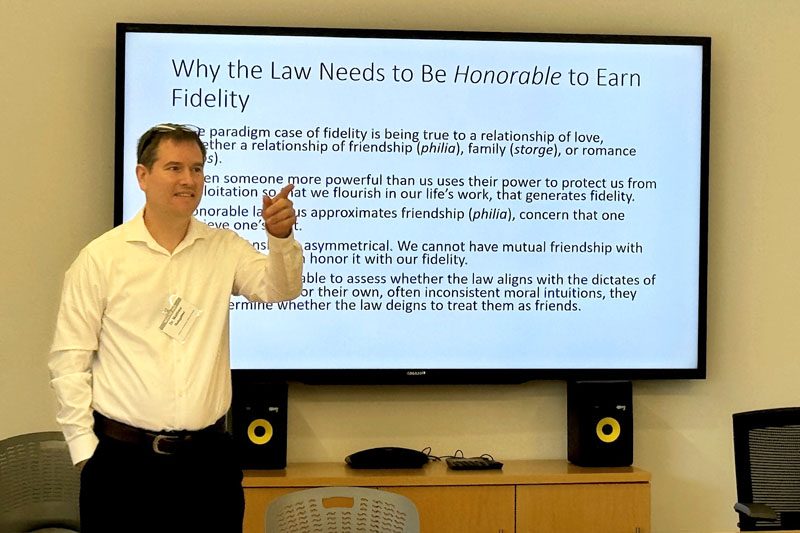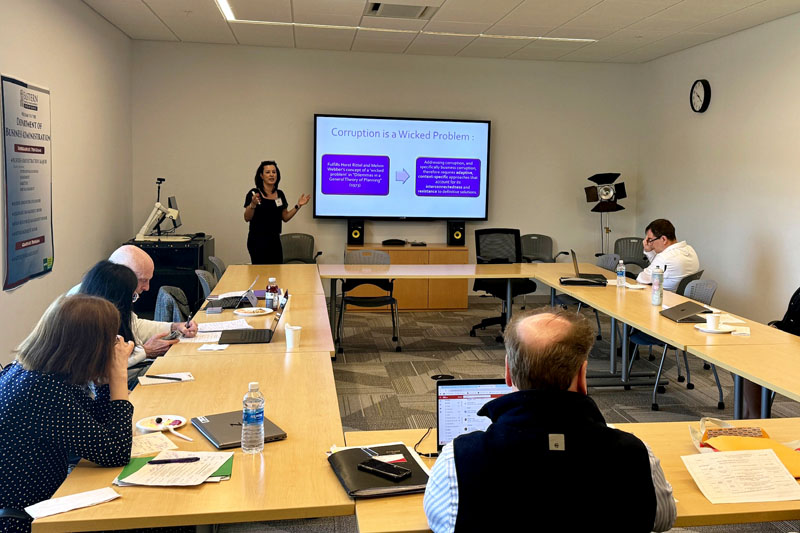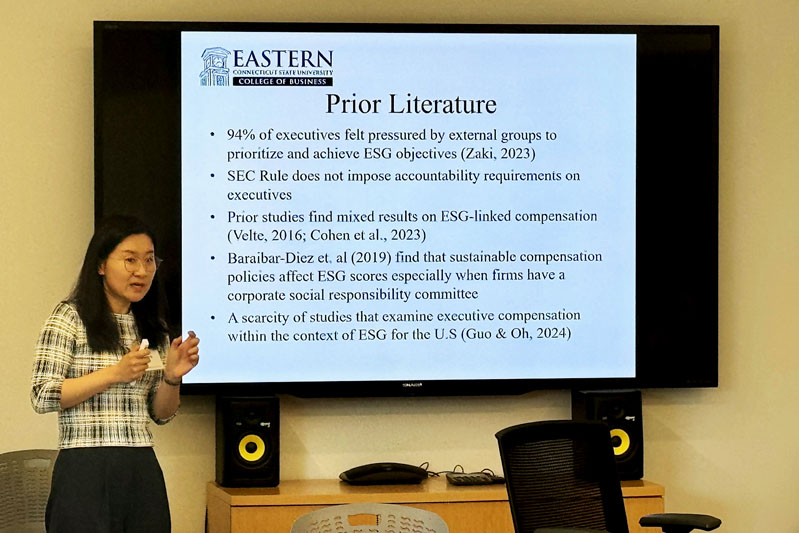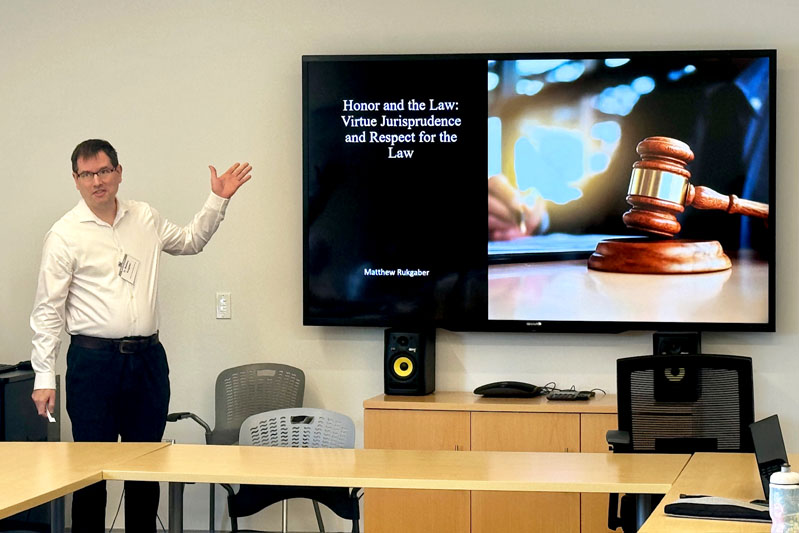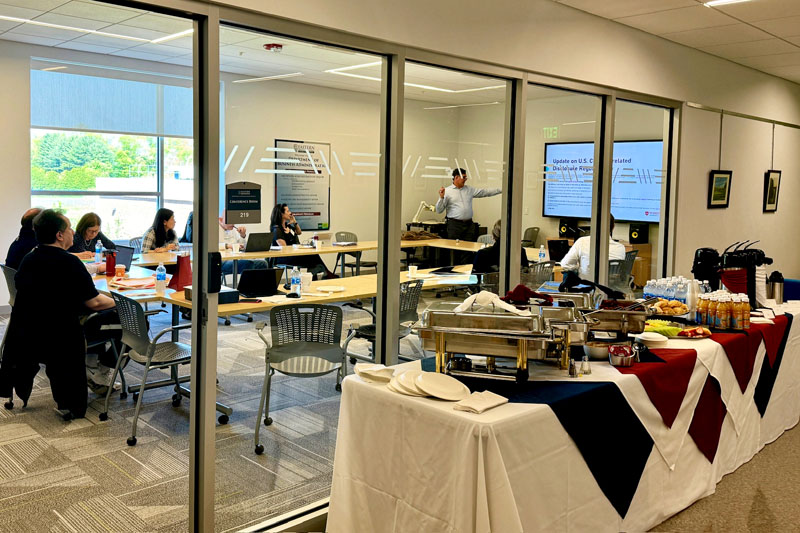- Apply
- Visit
- Request Info
- Give
Eastern hosts regional business conference
Written by Kyle Berson '26
Published on May 15, 2025
Will artificial intelligence help reduce government corruption? What role does the virtue of honor play in American law? These were some of the questions explored by three Eastern Connecticut State University faculty members at the Northeast Academy of Legal Studies in Business (NEALSB) 2025 Annual Conference, hosted May 9-11 on the Eastern campus.
NEALSB is a regional division of the Academy of Legal Studies in Business (ALSB), a professional organization of scholars and educators in the fields of business law, legal environment, and related fields.
This year’s conference welcomed approximately 20 institutions to Eastern’s campus and featured presentations from lecturers Nicole Norval of business administration and Matthew Rukgaber of philosophy, as well as accounting Professor Meng Guo. Faculty members at Bentley University, Manhattan University, the University of Hartford, and the University of Connecticut, among others, also presented at the conference.
“At Eastern, we are deeply committed to the liberal arts tradition and to preparing students for meaningful careers and civic engagement,” said Dean of Education and Professional Studies and Graduate Division Niti Pandey. “The themes of this conference resonate deeply with that mission — it calls us to think critically, act ethically, and lead with purpose.”
“Hosting NEALSB isn’t just about logistics — it’s about leadership,” said business administration Professor and Department Chair Emiliano Villanueva. “Eastern is stepping forward as a hub for ideas, dialogue, and innovation in business education. Our faculty presenters are bringing that vision to life.”
The conference was spearheaded by Norval, the NEALSB president-elect for the 2025-2026 academic year. Chambers and Bird said that Norval “went above and beyond her duties as organizer, paper presenter, and discussant. The success of the conference would not have been possible without her hard work.”
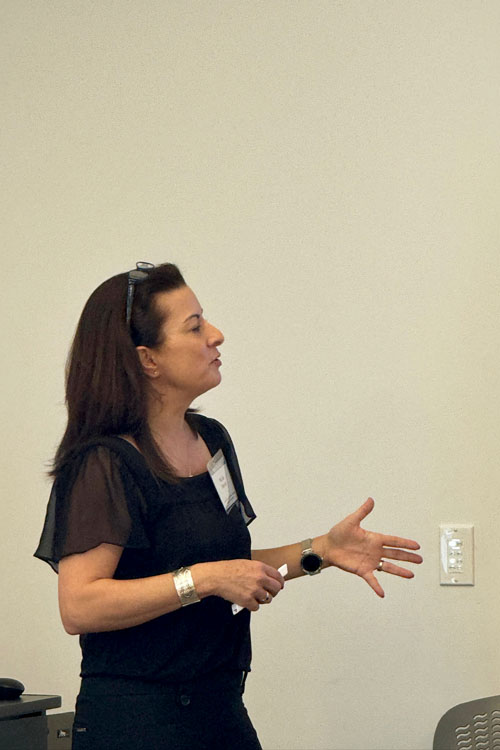
Norval presented her paper written with Sameer Somal, CEO of Blue Ocean Global Technology, about applications of AI in the business sector, specifically its potential to reduce business corruption.
Their presentation explored regulatory approaches to AI in the United States and the European Union, and how they could intersect with current anti-corruption legislation, specifically in the financial services sector, which has seen multiple corruption scandals in recent years. Norval and Somal applied their findings to two recent scandals to explore how AI legislation might have changed their outcomes.
Rukgaber presented his research on the role the virtue of honor, or the privileges and ways by which people wield power, plays in American law. He argued that the public’s concept of honor significantly shapes the popularity and sense of legitimacy of legislation in the country.
“In particular, I hold that the law needs to have the trait of ‘being honorable’ to earn our fidelity to it,” Rukgaber said. By his conceptualization, acts that benefit the powerless are considered “honorable,” while those that support power imbalances are considered “dishonorable.”
“Honor operates along the dimension of power and across power inequalities,” he said. “The law is effectively the highest power there is. Thus, we should honor it without fidelity insofar as it uses its power properly: in the service of the powerless.”
Guo presented her research, titled “Incentivizing Sustainability: The Role of ESG Metrics in Executive Compensation.” She explored how business executives could have their pay structure redesigned to incentivize a focus on improving environmental, social, and governance (ESG) issues within a company.



